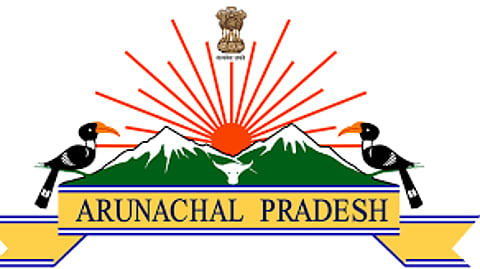
- Home
- Live Blog
- Breaking News
- Top Headlines
- Cities
- NE News
- Sentinel Media
- Sports
- Education
- Jobs

ITANAGAR: The question of whether an IAS officer can simultaneously occupy government accommodation and receive Housing Rent Allowance (HRA) from the government is a complex one. The central government, in an order issued on September 23, 2022, withdrew several benefits previously granted to AGMUT cadre officers.
These comprised a 25 percent increase in basic pay and the right to keep government housing at the last posted place upon transfer to the northeastern states. In most states, other compensation mechanisms have been instituted for some of these withdrawn benefits; however, none seems to be the case for Arunachal Pradesh. There is no documentation accessible to the public showing the existence of any specific policy for the state.
The issue came to light in Kurung Kumey district when Tagam Mibang, Extra Assistant Commissioner (EAC), Arunachal Pradesh Civil Service (APCS), addressed a letter to the Chief Vigilance Officer on 19 November. It was alleged by him that the Deputy Commissioner (DC), Vishaka Yadav, has been staying at the DC bungalow as well and, at the same time, is collecting HRA, against which norms are being flouted. Mibang called for an inquiry into the matter and reasoned out that if such a provision be there, it must reach all officers.
He alleged that a Circle Officer or CO, who acts also as the drawing and disbursing officer, makes a deal with the DC on HRA issues by getting a new car from the government, but it was a dilapidated vehicle that was provided to him.
Conflicting government policies have complicated the situation. In a 2018 Office Memorandum by the Ministry of Finance, officers posted in northeastern states were allowed to claim HRA for their previous station of posting, such as Delhi.
However, the 2022 order withdrawing special benefits for AGMUT cadre officers brings into question whether this earlier provision remains valid. Reports indicate that DC Vishaka Yadav, who was posted in Kurung Kumey in March 2024, had not availed of HRA but exercised the option under the provision of 2018 that came into force with the change of rules in 2022.
The lack of clarity in Arunachal Pradesh's policies further complicates the matter. Personnel department officials have reportedly referred the issue to the finance department for clarification. This, in turn, indicates an ongoing administrative dilemma, because the absence of clear guidelines creates uncertainty for officers serving in the region.
At the heart of the controversy are concerns about the clarity of policy, benefits equality, and administrative ethics. The allegations point toward favoritism and improper use of government resources by casting a shadow over the governance practices. The result will depend on the finance department's interpretation of overlapping rules, but until now, the debate has shone a light on issues of fairness and transparency in the state's administrative framework.
ALSO WATCH: